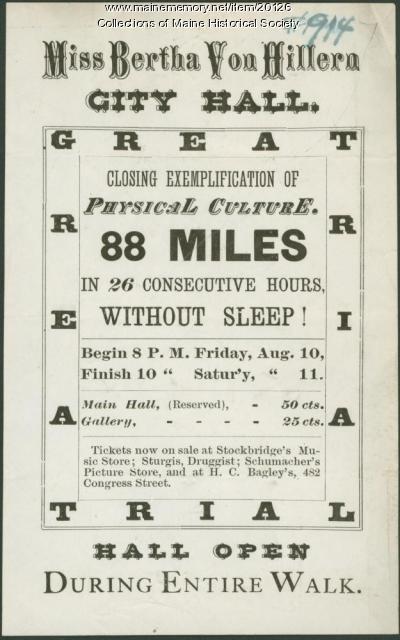Keywords: physical
Item 68223
Carolyn Stone, Farmington State Normal School, ca. 1907
Contributed by: Mantor Library at UMF Date: circa 1907 Location: Farmington Media: Photographic print
Item 68230
Carolyn Stone, Farmington State Normal School, 1928
Contributed by: Mantor Library at UMF Date: circa 1928 Location: Farmington Media: Photographic print
Exhibit
We Used to be "Normal": A History of F.S.N.S.
Farmington's Normal School -- a teacher-training facility -- opened in 1863 and, over the decades, offered academic programs that included such unique features as domestic and child-care training, and extra-curricular activities from athletics to music and theater.
Exhibit
Public education has been a part of Maine since Euro-American settlement began to stabilize in the early eighteenth century. But not until the end of the nineteenth century was public education really compulsory in Maine.
Site Page
Farmington: Franklin County's Shiretown - Carolyn Stone, Farmington State Normal School, 1928
"She continued to teach physical education classes while serving as dean. She also served as the school nurse until 1928."
Site Page
Architecture & Landscape database - Database Collections
"Each firm's (primary) physical location is included in the listing. Many collections include contributing architects and designers."
Story
Learning to fly and instructing cadets at West Point during WWII
by Vera Cleaves
West Point during World War II
Story
Beef Cutlet always reminds me of home in Iran
by Parivash Rohani
Making beef cutlet in Maine connects me to my home in Iran and my Baha'i faith.
Lesson Plan
Grade Level: 3-5
Content Area: Health Education & Physical Education, Social Studies
This lesson plan will introduce students to myriad communities in Maine, past and present, through the universal lens of sports and group activities. Students will explore and understand the history of many of Maine’s recreational pastimes, what makes Maine the ideal location for some outdoor sports, and how communities have come together through team activities throughout Maine’s history.
Lesson Plan
Portland History: Construction, Preservation and Restoration of the Portland Observatory
Grade Level: 3-5, 6-8
Content Area: Science & Engineering, Social Studies
Included here are activities based in economics, mathematics, physics, social studies, civics and language arts. Students can debate the issues surrounding preservation and urban development as well as the changing value of money.















